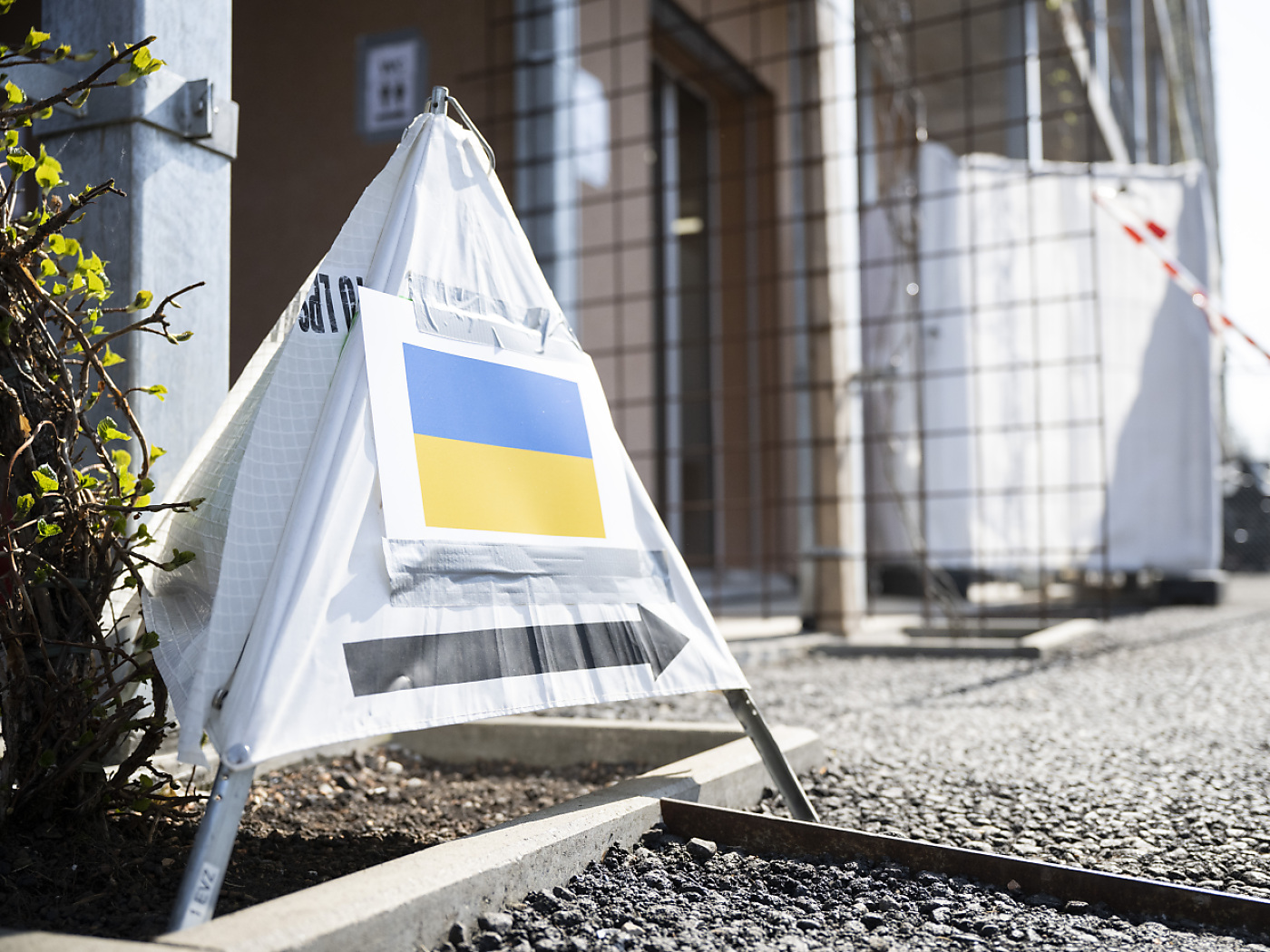
Around 68,000 Ukrainian refugees live in Switzerland

Three years after the outbreak of the war in Ukraine, around 68,000 Ukrainians are currently living in Switzerland as refugees with protection status S.
+Get the most important news from Switzerland in your inbox
In total, the State Secretariat for Migration (SEM) has granted over 99,000 requests for protection to date.
More than 114,000 applications had been submitted by the end of January, according to the latest SEM figures published on Monday. Almost 98% of all applications were submitted by Ukrainian nationals.
However, the overall number of applications has fallen sharply. In 2024, 16,616 applications for S status were submitted (compared with 23,012 in 2023, a fall of 27.8%), of which 9,272 were successful. This status was terminated for 9,421 holders. For the current year, the SEM expects around 17,000 applications.
At the end of 2024, there will be 68,070 people with S status (end of 2023: 66,083).
At the beginning of September 2024, the Swiss government decided to extend the S protection status of people from Ukraine until March 4, 2026. Support measures for beneficiaries of this status are also being maintained.

More
Switzerland to extend S status for Ukrainians until March 2026
Main burden on the most populous cantons
Ukrainian refugees, most of whom have been living in Switzerland for more than two years, have found refuge in many parts of the country. Between March 12, 2022 and January 2025, almost 111,000 people with protection status S were allocated to the cantons. Some of them have already left, while others have stayed.
According to SEM data at the end of November last year, canton Zurich has taken in the most Ukrainians to date: around 12,500. Canton Bern comes second with around 6,150 people. Vaud, Aargau and St Gallen follow.
The cantons are responsible for accommodating refugees allocated by the federal authorities. Ukrainian refugees are accommodated in collective housing, private homes or flats allocated to them.
+ Do Ukrainian refugees have a secure future in Switzerland?
Because of Switzerland’s federal system, there are no national statistics on host families. As cohabitation has worked well in the majority of cases, some cantons have decided to accommodate other groups of refugees in the same way to encourage integration. On the basis of these experiences, the Swiss Refugee Council (OSAR) would like to establish private accommodation as a fixed component of the asylum system.
Rising employment rate
A growing number of Ukrainian refugees have found work in Switzerland. The employment rate for adults with protection status S is now 30%, according to the SEM. As of February 4, almost 13,000 people with protection status S were working in Switzerland. However, the 40% target set by the Federal Council has still not been met.
For Ukrainians who have been in Switzerland since spring 2022, the employment rate is 38%. Among the 18-50 year-olds in this group, almost 42% are in work. According to the authorities, this rate rose last year in all the cantons. The previous year, there were 8.5% fewer Ukrainian workers.

More
Swiss refugee policy for Ukrainians leaves many questions unanswered
The breakdown by sector is particularly striking in the hotel and catering industry and in the planning, consultancy and IT sector: more than 19% of people with S protection status were working in these two areas at the beginning of February 2025. This is followed by personal services and education, with 6.6% and 5% of the workforce respectively.
Finally, 4.25% of Ukrainians work in homes and social assistance, and around 4% in medicine and health. The SEM groups the remaining 45% of workers with protection status S under “other sectors”. These include, for example, specialised retail trade, the leisure and entertainment sector, machine and vehicle construction, agriculture, the building industry and domestic services.
Translated from French by DeepL/sb
This news story has been written and carefully fact-checked by an external editorial team. At SWI swissinfo.ch we select the most relevant news for an international audience and use automatic translation tools such as DeepL to translate it into English. Providing you with automatically translated news gives us the time to write more in-depth articles.
If you want to know more about how we work, have a look here, if you want to learn more about how we use technology, click here, and if you have feedback on this news story please write to english@swissinfo.ch.

In compliance with the JTI standards
More: SWI swissinfo.ch certified by the Journalism Trust Initiative




























You can find an overview of ongoing debates with our journalists here . Please join us!
If you want to start a conversation about a topic raised in this article or want to report factual errors, email us at english@swissinfo.ch.